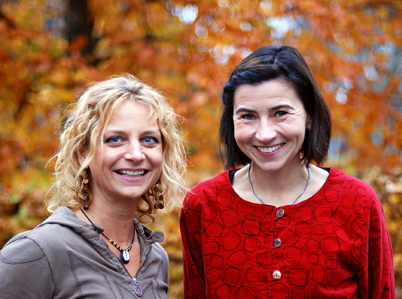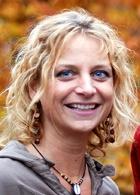Promises more science students
The corporate world needs more scientists, but few young people choose a career in science. Will we finally break the science code?

With the help of one million Euros scientists are aiming high:
The IRIS project not only aims to understand how youth make their career choices and why they, and particularly girls, choose or reject the natural sciences.
The researchers also promise to offer advice on science education in schools, how recruitment campaigns ought to be shaped and which measures that are the best to retain students of the natural sciences.
Ellen Karoline Henriksen, Department of Physics, UiO, and Camilla Schreiner at the Norwegian Centre for Science Education have initiated and coordinated IRIS, Interest & Recruitment in Science. They are now about to sign a contract with the EU to secure three years of funding.
IRIS will explore how various factors affect young people’s career choices:
- What is their opinion of the science education in schools?
- England has recently changed their science education to make it more practical and applicable to society; does this affect the students’ views on science studies?
- How important is family background, the parents’ education level and the students’ personal views on identity and academic self-esteem?
IRIS will look at cultural, sociological and psychological factors, combine different theories and study large groups of individuals in several countries.
Recruitment potential among girls
The focus will all along be on girls and science.
"The female dimension is absolutely vital in our work to recruit more people to science," Henriksen explains.
"First of all, the biggest recruitment potential is amongst girls since there are fewer women who choose science studies."
"Besides, increasing the number of women is important from a democratic point of view, and we believe that women will contribute in a positive way, with different values, ways of thinking and work methods," says Henriksen.
Ambitious project
The plan is to put the results from the project to practical use:
"We will contribute with advice, comments, critique, and guidelines to people and institutions within the field. We want new knowledge from the project to actually be put to use," says Schreiner.
"It is an ambitious project," Henriksen admits.
But then again, a lot of people will be involved.
"We have partners at six research communities in five different countries. – And we expect the support from the EU to be followed by additional funding from UiO so that we can hire research scholars," Schreiner states.
IRIS’ main occupation is an extensive survey among freshmen at universities and university colleges, both science students and others.
Some of them will later be contacted by telephone to find out how many who choose to drop out of college.
The study will include qualitative interviews. In addition, the researchers will follow some recruitment measures over a certain time period.
Support from the corporate world
The project was initiated due to the low number of young people, especially women, who choose a career within the natural sciences. The problem isn’t necessarily that the number of applicants is decreasing, but rather that it needs to increase.
The corporate world has announced that they need more people within the fields of mathematics, engineering, physics, and technology, and these areas also have the biggest gender imbalance.
How serious the corporate world sees the situation is illustrated by the fact that the EBL Norwegian Electricity Industry Association, NITO, the Federation of Norwegian Industries, Norwegian Technology, the Norwegian Oil Industry Association and Tekna together are funding a PhD post within research on recruitment for science studies and that Schreiner’s post is partly funded by NITO and NHO.
Translated by Vigdis Isachsen
Schreiner and Henriksen don’t merely want to produce new knowledge:
"The main goal of all our research is to recruit more people and improve the gender balance within the natural sciences," they state.
They recently established the research community re:K:rutt – Science:Gender:Recruitment, in which the Norwegian Centre for Science Education, the Department of Physics, and the Department of Teacher Education and School Development participate.
One of re:K:rutt’s ongoing projects is Vilje-con-valg, which looks at how youth choose or reject science studies in Norway. Vilje-con-valg will establish new knowledge that the IRIS project later can use on an international basis.
